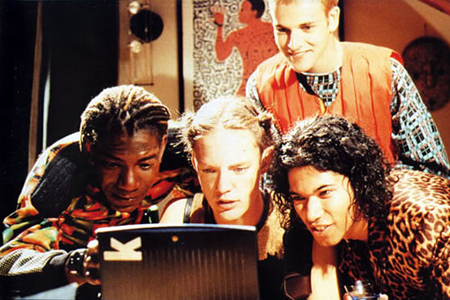Appeals Court: Computer Code Is Not “Property” — HACK THE PLANET.
Imma go ahead and be upfront with you about something you may have already surmised: I’m not versed enough in the legal system to adequately comment on this post. However, with my admittedly limited capacities, I find this ruling quite interestings.
Gizmodo:
Sergey Aleynikov, an ex-Goldman-Sachs programmer, spent a year in prison for downloading source code of the firm’s high-speed trading software before his sentence was overturned in February. Today, the court explained why–downloading computer code doesn’t constitute stealing under the National Stolen Property Act.
The 2nd Circuit Appeals Court ruled that since computer code cannot be physically obtained, it doesn’t fit the legal description of a stolen good. “Because Aleynikov did not ‘assume physical control’ over anything when he took the source code, and because he did not thereby ‘deprive [Goldman] of its use,’ Aleynikov did not violate the [National Stolen Property Act],” the court wrote in its decision.
In addition, the Appeals Court struck down charges against Aleynikov of violating the Electronic Espionage Act since the software was never destined for foreign markets. Specifically, the judges wrote, “Because the HFT system was not designed to enter or pass in commerce, or to make something that does, Aleynikov’s theft of source code relating to that system was not an offense under the EEA.”
The court was quick to point out that this decision should not be interpreted for all cases of electronic theft, however the legal recognition that code isn’t physical property (which people have been saying for years) is sure to make this case a focal point in future MPAA/RIAA wranglings.
Interesting, right? Or am I the only one intrigued by the ruling.




